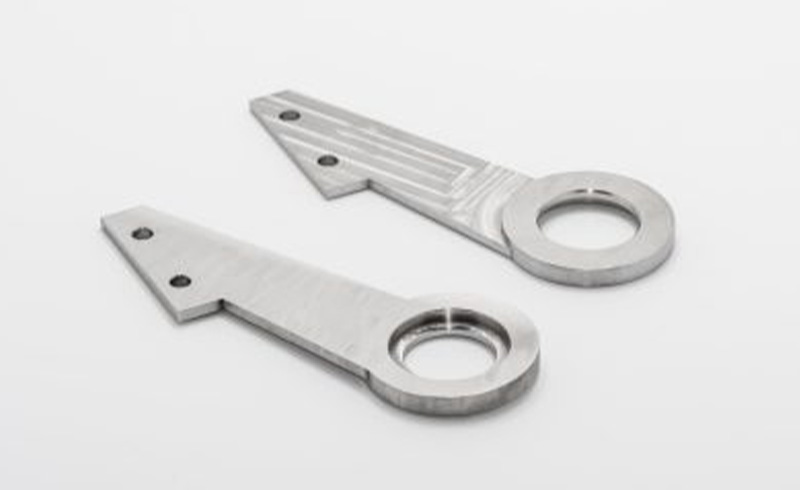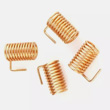Precision Machining
- CNC Machining Service
- CNC Milling
- CNC Turning
- Automatic Turning
- Machining Screw/Rivet
- Wire EDM Machining
- Casting & CNC
- Aluminum Profile & CNC
- Cold Heading & CNC
High strength and toughness, fatigue resistant. Alloy steels incorporate additional alloying elements beyond carbon, leading to heightened hardness, toughness, fatigue resistance, and wear resistance
| Grade & Composition | Key Characteristics | Primary Applications |
|---|---|---|
| General Purpose PLA (e.g., REVODE201) | • Density: 1.25–1.28 g/cm³ • Tensile Strength: 40–60 MPa • HDT @0.45 MPa: 55–60°C • Melt Flow Rate: 10–30 g/10min | • Food packaging (utensils, films) • Disposable tableware • Stationery & household items |
| Enhanced PLA (Glass fiber/nanocellulose modified) | • Flexural Modulus: 3–4 GPa • HDT @0.45 MPa: 80–120°C • Impact Strength: 8–25 kJ/m² • Degradation Cycle: 3–24 months | • Orthopedic fixation materials • High-temperature structural parts • Precision 3D printing components |
| 3D Printing Grade (e.g., Stratasys filaments) | • Printing Temperature: 170–230°C • Dimensional Stability: ±0.02 mm • Oxygen Transmission: 15–25 cm³·mm/(m²·day·atm) • Bio-degradation: 6–12 months | • Rapid prototyping • Educational models/toys • Medical anatomical models |
| Property | Test Standard | General PLA | Enhanced PLA | 3D Printing Grade |
|---|---|---|---|---|
| Tensile Strength | ISO 527 | 40–60 MPa | ≥70 MPa | 50–70 MPa |
| Elongation at Break | ISO 527 | 4%–10% | 5%–15% | 3%–8% |
| Flexural Modulus | ISO 178 | 100–150 MPa | 3000–4000 MPa | 2000–3500 MPa |
| HDT @0.45 MPa | ASTM D648 | 55–60°C | 80–120°C | 55–65°C |
| Notched Impact Strength | ISO 179 | 2–10 kJ/m² | 8–25 kJ/m² | 2–15 kJ/m² |
| Melt Flow Rate (190°C/2.16kg) | ISO 1133 | 10–30 g/10min | 5–20 g/10min | 2–40 g/10min |
•Moisture Control: Mandatory drying at 45-60°C for 4-6 hours (moisture ≤0.025%) to prevent hydrolysis degradation[2,8](@ref)
•Melt Temperature: 170–230°C (±5°C tolerance) - degradation occurs above 240°C with molecular weight loss[3,6](@ref)
•Cooling Rate: Controlled crystallization at 80-110°C mold temperature for enhanced mechanical properties[5](@ref)
•Thermal Stability: Standard PLA softens above 50°C; glass fiber modification increases HDT to 120°C[5,9](@ref)
•Brittleness Control: Adding 15-20% TPU or PBAT improves impact strength from 5 kJ/m² to 25 kJ/m²[6,9](@ref)
•Degradation Rate: Industrial composting at 58°C/90% RH achieves 6-month degradation vs 2+ years in natural conditions[2,5](@ref)
•Food Contact: Complies with FDA 21 CFR 177.1520 and EU 10/2011 for food packaging applications[2,5](@ref)
•Medical Certification: USP Class VI compliant for surgical implants with 3-6 month absorption cycle[5,8](@ref)
•Biodegradation Standards: Certified under ASTM D6400 & EN 13432 for industrial composting[2,5](@ref)


On December 12 , 2019,LML welcomed three customers again.
Read more about quality assurance
On December 12 , 2019,LML welcomed three customers again.
Read more about quality assurance
On December 12 , 2019,LML welcomed three customers again.
Read more about quality assuranceTake advantage of our network and see what LML can do for you